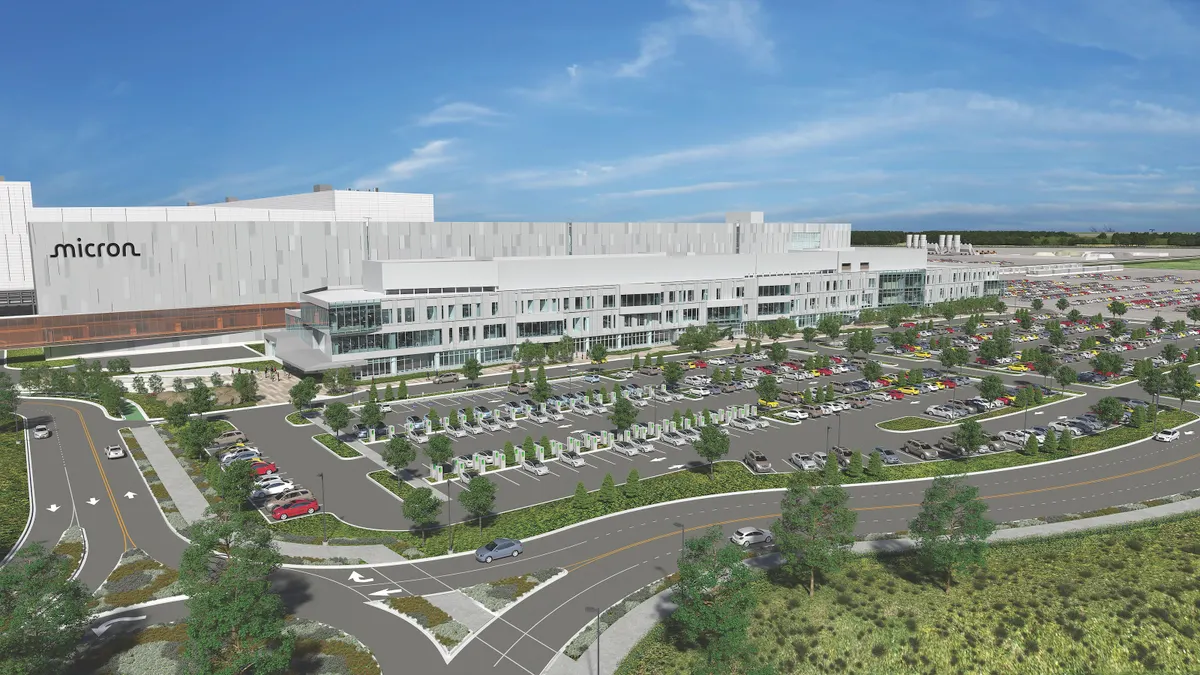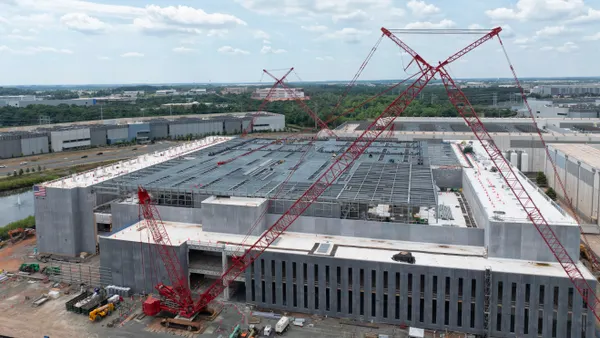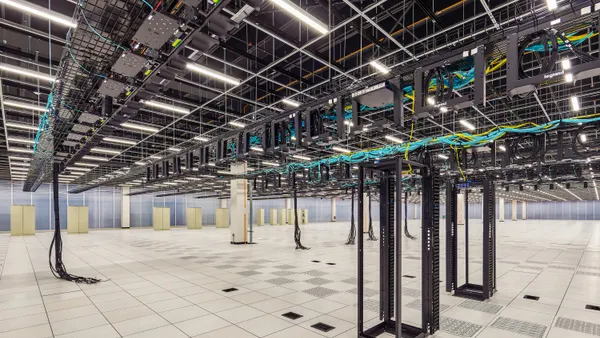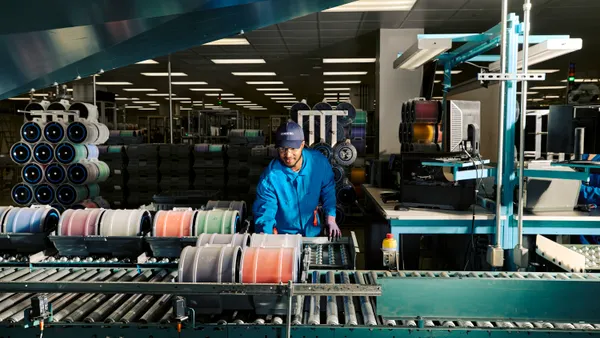The construction industry has always required a high degree of flexibility: Seasonal cycles, weather delays and permit timing have made adaptability essential. Economic booms and busts have created spikes in demand and periods of market contraction.
Today’s volatility is more intense and systemic. In addition to unpredictable fluctuations in demand and persistent labor shortages, policy shifts and inflation have disrupted supply chains, forcing continual recalibration and unpredictable project delays.
Construction businesses must be agile — ready to move parts and people on demand to support growth. Central to that goal: their vehicle fleets.
Reactive Fleet Management Strategies Are Ineffective
One way construction businesses may respond to market volatility is by deferring capital expenditures. That approach can be shortsighted. When demand rebounds, trying to hastily replace an inadequate or aging fleet can hamper their ability to scale up quickly.
“We often hear business owners say they try to keep their current vehicles going until they have growth needs or vehicles become too costly to maintain,” says Billy Dobosz, Assistant Vice President, Enterprise Fleet Management. “A reactive fleet plan like that leads to a whole host of problems: unpredictable operational expenses, increased downtime, preventable safety risks to their employees, and an inconsistent customer experience.”
Businesses may employ workarounds like relying on workers’ own vehicles while offering reimbursement for mileage and wear. While this approach avoids the need for a big capital outlay, it can result in loss of control and visibility, and no backup when a personal vehicle breaks down.
Scrambling to invest in assets during an economic boom, meanwhile, is difficult and expensive. This approach can also backfire during market downturns, leaving companies with a surplus of underutilized vehicles that add cost without contributing to revenue generation.
It’s Time for Next-Level Flexibility
A reactive fleet plan is insufficient in the face of systemic volatility. “Planning for the future is all about flexibility and anticipating business needs, which often requires the proper fleet strategy,” Dobosz says.
A flexible, next-gen fleet model strengthens operations during both lean and boom periods, optimizing for the present while preparing for the future. The smartest construction firms aren’t just working harder — they’re working strategically. And that starts with a fleet that flexes when they do.
Three keys to staying nimble amid uncertainty can help construction businesses not only survive the turmoil but position themselves for growth:
- A flexible fleet ownership model
- Access to next-gen fleet data and technology
- A mobility partner to optimize your fleet strategy
Blend Ownership, Leasing and Rentals
For many contractors, the ideal fleet strategy will include owned assets supplemented by a combination of leased vehicles and long- and short-term rentals.
This blended ownership model adds flexibility — contractors can scale their fleet quickly as needs change. It also provides significant cost-saving opportunities, since owners won’t be saddled with the expense of purchasing vehicles for temporary needs that then sit idle when work slows down.
“Rarely is all ownership, all rental or all leases the right strategy,” says Gordon Welsh, Corporate Business Development Manager at Enterprise Truck Rental. Both Enterprise Truck Rental and Enterprise Fleet Management are connected to Enterprise Mobility, a leading provider of mobility solutions that provide flexible options to meet each client’s unique needs.
Many Enterprise full-service fleet management customers have a hybrid plan, Dobosz says. “Removing all vehicles from your current inventory isn’t typically going to make sense, because they all have different ages, features and purposes. Our fleet strategies and recommendations are rooted in what’s right for the business.”
Proactively Leverage Next-Gen Fleet Tech
Data collection and analysis are key to optimizing a flexible fleet. “Vehicles are smarter these days, and their data can yield actionable insights,” Dobosz says. When a truck sends a maintenance code, it notifies the driver and alerts fleet managers. “Analyzing that data over time enables you to become less reactive and more predictive. Connected data also allows you to compare the vehicles across your fleet and see which are performing the best,” he adds. “For example: If I know this vehicle needs service now and will need service in the next 30, 60 or 90 days, I can start planning now.”
Access to data like vehicle availability, uptime, maintenance costs and potential savings can also help determine which units need to be replaced most urgently to minimize expense and optimize asset use. Many vehicles today can provide this information. The challenge is leveraging the data collected to serve unique business priorities.
Let the Experts Build a Fleet Plan Around Your Needs
Engaging with a mobility solutions provider like Enterprise — whether to completely outsource fleet management, gain flexibility to cover short-term and seasonal needs with truck rental, or for vehicle and maintenance tracking — can be especially helpful since post-pandemic downsizing eliminated positions like fleet or equipment manager and forced others to shoulder those responsibilities.
“Compliance and safety managers now also manage fleets, including maintenance oversight,” says Brett Vandermeulen, Director of North American Truck Rental for Enterprise Mobility. “We can do the heavy lifting for whoever is managing the fleet in-house. We’ll call to let them know services are coming up and even schedule it for them. All the vehicle operator has to do is show up at the place and time most convenient for them.”
Enterprise has mastered lifecycle cost optimization, vehicle acquisition and resale, and maintenance scheduling and compliance:
- Enterprise Fleet Management provides long-term maintenance and lifecycle planning for owned or leased assets
- Enterprise Truck Rental offers on-demand, low-commitment access to trucks and vans for short-term or seasonal needs
- Flex-E-Rent from Enterprise Truck Rental is designed as a flexible middle ground between short-term rentals and full leasing or fleet management programs
These offerings, backed by decades of expertise, uniquely position Enterprise to help construction fleets stay flexible and even scale in today’s unpredictable market.
“Our customers need to be focused on their business,” Dobosz says. “They count on us to let them know what’s changing and how it may impact their business so they can make the best decisions.”
To learn more or discuss your vehicle needs with a local expert, go to Enterprise.com.











